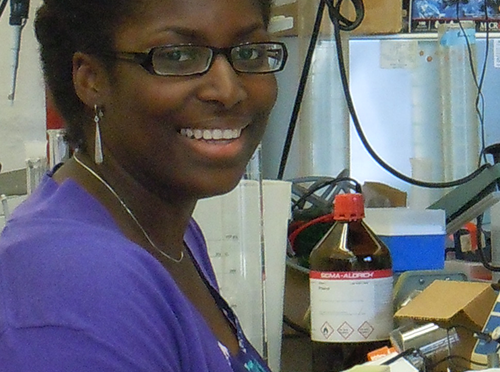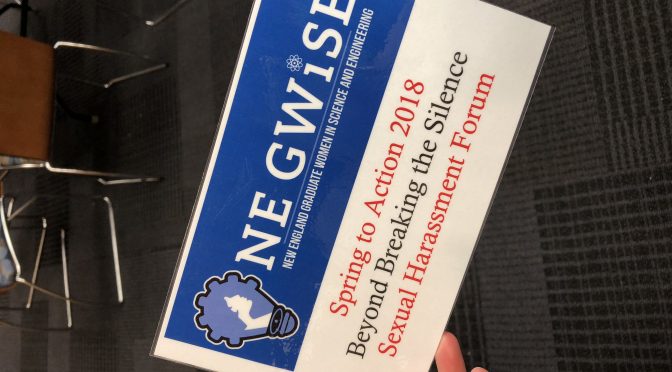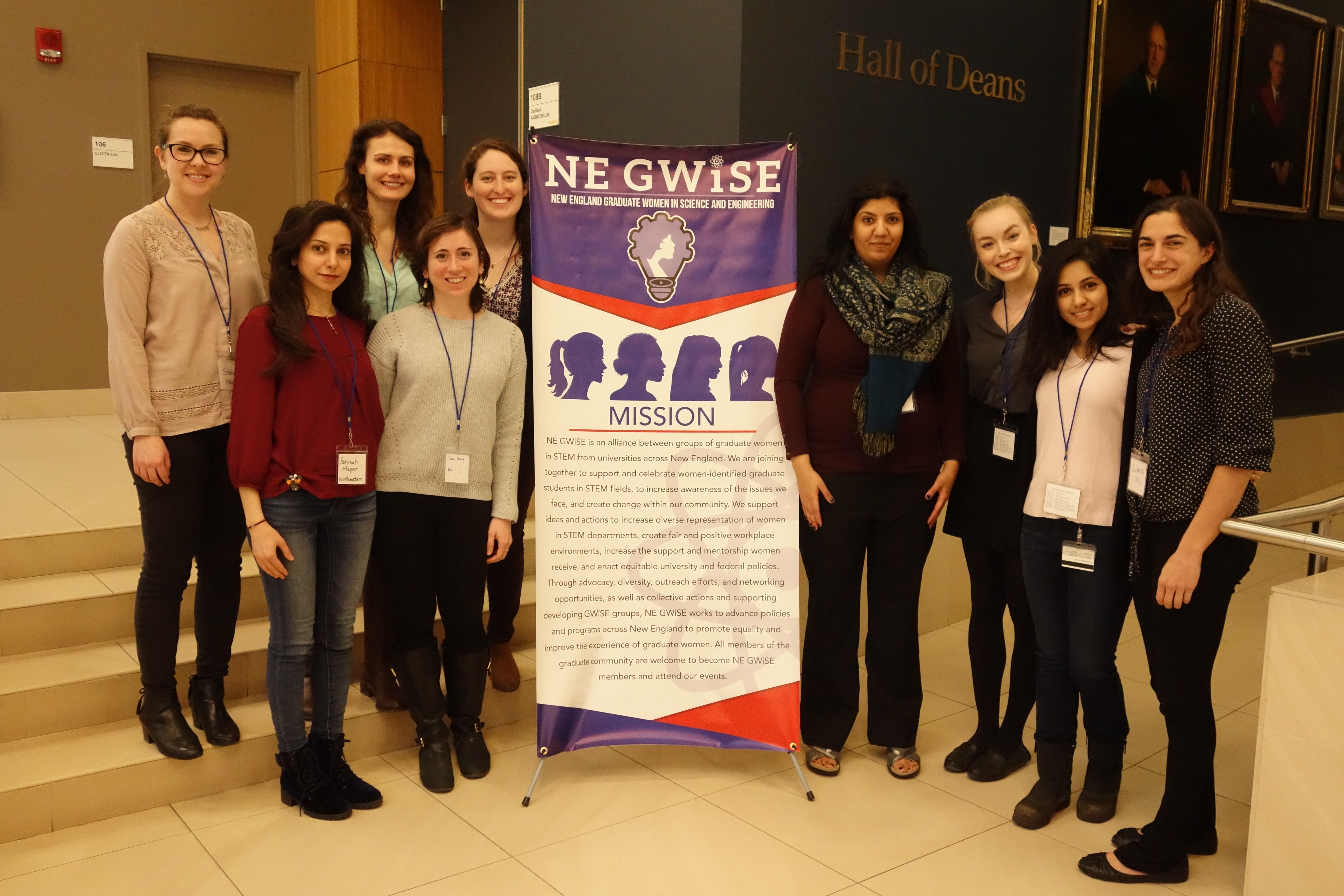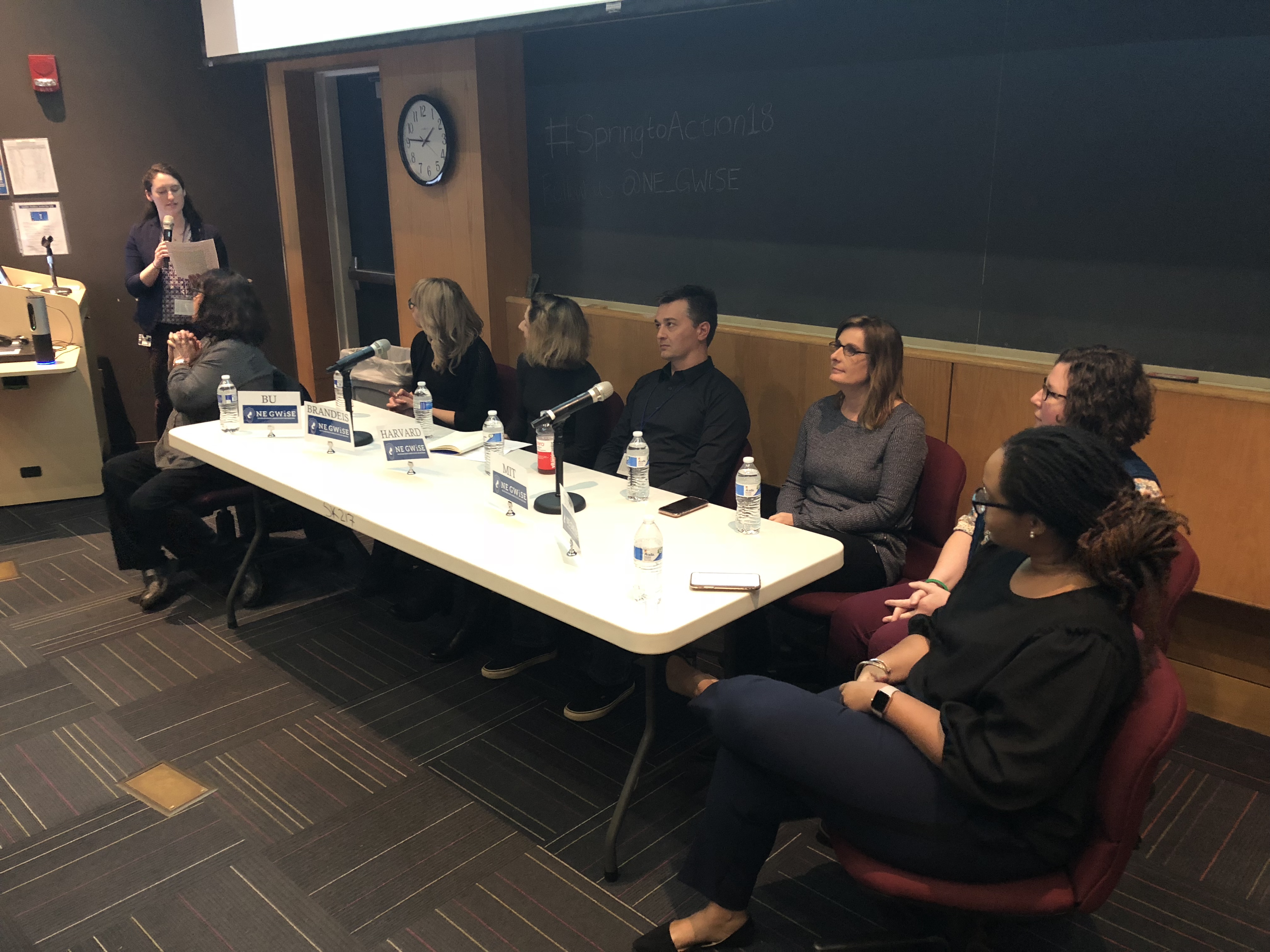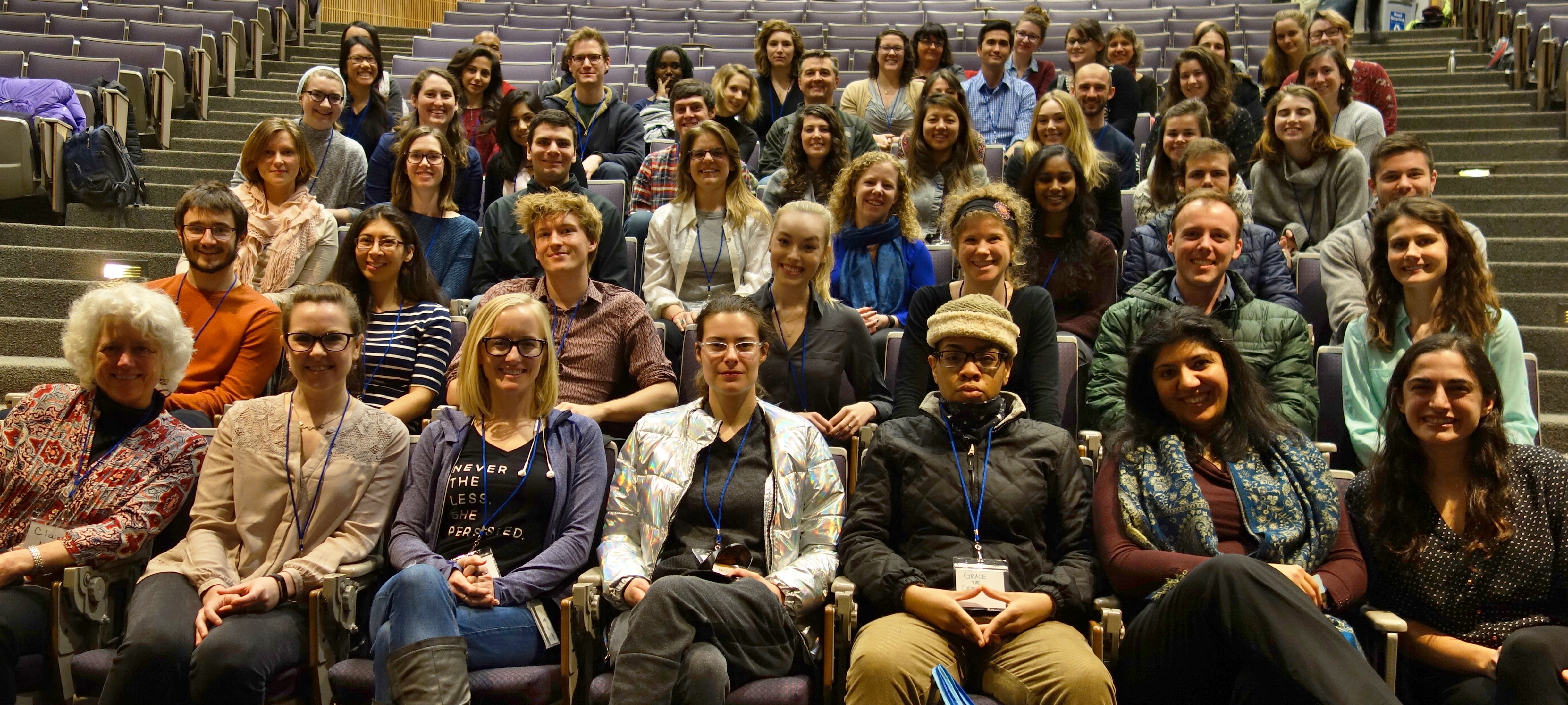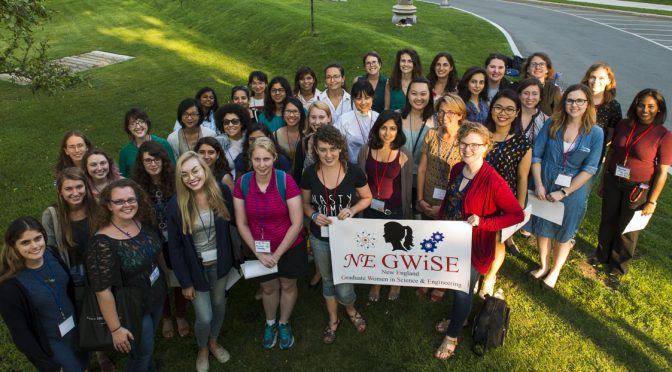
One of my favorite Boston GWiSE events is the monthly Coffee and Conversations with female faculty, alumni, and post-docs from Tufts. “Coffee and Convos” allows GWiSE members and other GSBS students to have a casual conversation with these successful professionals. Past guests have included Malavika Raman, Claire Moore, Trina Basu, Georgina Kontou, and Parisa Kalantari. We learn about what got them into science, their career trajectory, and advice for navigating academia. Unfortunately, work-from-home and stay-at-home advisories have brought all student-led events to a halt. So today, I would like to bring the coffee and convo directly to our work-from-home office. Start brewing your favorite caffeinated drink and grab a snack if you haven’t already!
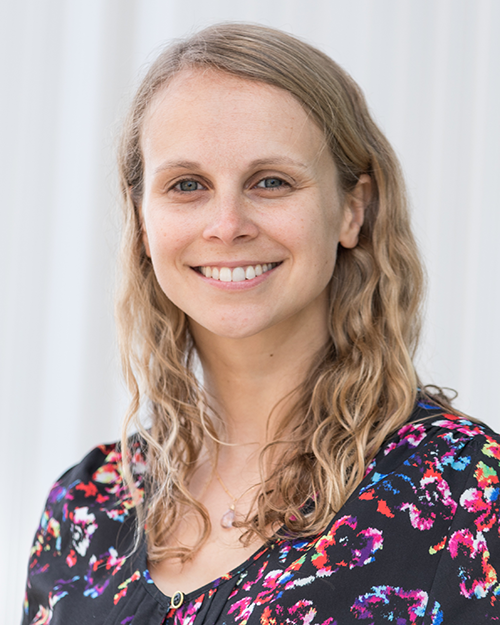
This month’s Coffee and Conversation is with Dr. Madeleine Oudin. She has been an Assistant Professor in the Department of Biomedical Engineering at Tufts School of Engineering since 2017. Since coming to Tufts, she has generated a lot of interest in her lab, which works on the role of tumor microenvironments in cancer metastasis and drug resistance. I sat down with her over Zoom and started off with the question that we start all “Coffee and Convos” with:
What got Madeleine into science?
Growing up in a suburb of Paris, France, Madeleine enjoyed her Biology and Chemistry courses in high school. None of her family members were scientists, so she fostered that growing interest by herself. She majored in an accelerated Biochemistry path at McGill University in Montreal because it combined these two interests and left out plant biology (a sentiment this author fully supports). She didn’t get into research until her senior year because she didn’t think undergraduates could do research!
What was Madeleine’s career trajectory after University?
With her new-found love for scientific research, she pursued a Master’s degree in Pharmacology at King’s College London. The one-year master program led to her to complete her PhD in Neuroscience in the same lab. The senior PI, Dr. Patrick Doherty, was studying stem cells from the subventricular zone of the brain in the context of adult neurogenesis. Meanwhile, the junior PI studied the migration of these cells in the stage after neurogenesis. What Madeleine learned from the junior PI is what got her into imaging cell movement, which is still a staple of her research today. “Let the cells tell you what they are doing.”
Madeleine loved neuroscience but craved a medical aspect that her research had been lacking up to that point. When she met Dr. Anne Ridley, who studies Rac and Rho signaling in cancer cell migration and metastasis, at a conference, Madeleine realized she could translate her skills in imaging cell migration to a field with more biomedical relevance. Her post-doc lab was a perfect place to tie her neuroscience training in with cancer biology. Dr. Frank Gertler at MIT studies Ena/VASP proteins involved in axon guidance that are also upregulated in cancer. This essentially divided the lab in half: a neuroscience group and a cancer group. Madeleine loved this! Additionally, the lab was in a new engineering building at MIT intended to foster collaborations with cancer research. When Madeleine looks back at her time at MIT, she admits that it was really cool to see the collaborations and new tools that came from this unique union of fields.
When it came to applying to faculty positions, Madeleine looked at both engineering and biomedical departments. She came to the Tufts School of Engineering in 2018. If you were to ask her at the beginning of her research training, she never would have imagined she’d end up in this field.
How can we change predominantly male science environments to be accepting of women?
Madeleine wants to see more representation in seminars, in faculty, and at conferences. Biology historically has had a higher representation of women than Engineering as a field. When Madeleine got to Tufts, the Biomedical Engineering seminar series was 90% men. She raised this issue with her colleagues. “A woman would’ve noticed the discrepancy in minority representation pretty quickly, but my male colleagues hadn’t. I think it’s important to promote awareness.” She then organized the seminar series and increased minority and women representation from 10 to up to 80%. Stepping up to this task reflects on Madeleine’s belief that more women in leadership roles will facilitate necessary changes to predominantly white, male environments.
Other areas that Madeleine thinks need more support are childcare, maternity leave, and time to apply for grants during maternity leave.
Has Madeleine ever experienced discrimination as a woman in the work place?
Madeleine wishes people would focus less on her appearance and more on her abilities as a scientist and mentor. Colleagues of hers have commented on how young she looks in front of students and have even mistaken her for an undergraduate student. To set a more professional tone and reduce confusion, she introduces herself as Professor Oudin. Conversely, she tries not to assume when asking other people what their role is at seminars and conferences. Despite these challenges, Madeleine has been extremely successful in her first 3 years as a professor. The Oudin lab has produced 3 published papers and been awarded a handful of grants since coming to Tufts. Make no mistake: Professor Oudin kicks ass as a scientist.
How does Madeleine foster an inclusive lab culture?
Madeleine’s students see her advocating for inclusion in her role as a mentor. Her lab consists of a majority of women and a diverse group of students. Interestingly, mostly female undergraduates apply to work in her lab. Some have told her it is because they are inspired by seeing a woman in her position. Madeleine enforces a respectful, collaborative, and supportive lab environment; no bullying or bad behavior is tolerated. She circulated an anonymous survey of lab culture, which opened the door to having a conversation about it. “As PIs, we aren’t taught how to manage. We aren’t always going to be perfect, but getting honest feedback from the lab on our work culture seems like the easiest step to take in that direction.”
As a mentor, Madeleine encourages her students to expand their professional network and try new things. As a baseline, she has younger students interact closely with older students in the lab. She also introduces her students to the people she knows in Boston. These are the steps she actively takes in fostering an inclusive and successful lab setting. However, she emphasizes there is only so much she can do. “Students can put themselves out there to get the information they need.” Madeleine provides excellent resources to her students and it’s their decision to utilize them.
Does Madeleine participate in outreach programs?
Outreach is another avenue in which Madeleine exemplifies her commitment to fostering an inclusive science community. Some of her favorite local outreach programs are the Cambridge Science Festival, Tufts Community Day, and the Girl Scouts Science Fair. She also participates in panels where she can raise awareness about the obstacles women still face in the fields of biology and engineering. The Biomedical Engineering and Chemical Engineering Graduate Student Society (BEaChES) at Tufts acknowledged Madeleine’s advocacy by voting her as an Exemplary Engineer among the Biomedical Engineering faculty in 2019 and 2020.
What new hobbies has Madeleine taken up during quarantine?
Madeleine recently got a Peloton! She says it’s a fun way to stay active while staying indoors. She’s also taken up more household projects like painting and gardening. And since Madeleine is gluten-free and has had little issue finding gluten-free flour at the market, she’s been baking cakes during quarantine.

